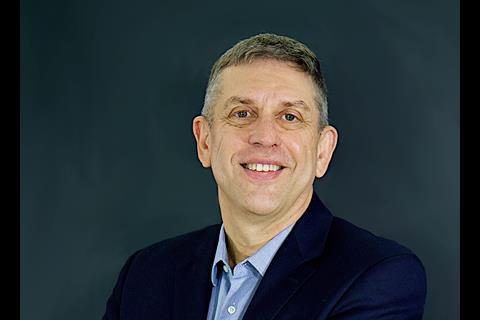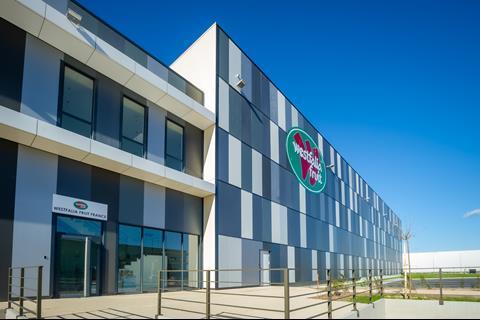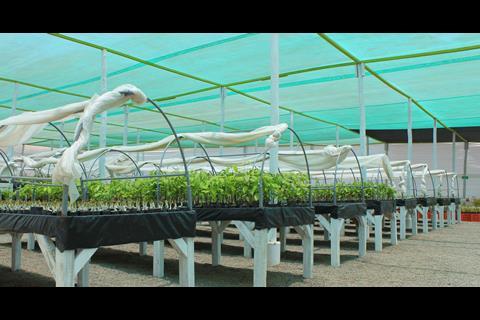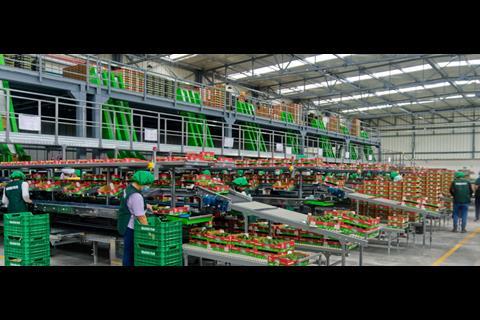Despite concerns around oversupply, Alk Brand is full of optimism for the future of the European avocado market. The group CEO at Westfalia Fruit tells Fred Searle where he sees greatest potential for production and consumption growth
Avocado demand is growing, albeit at a somewhat slower pace than we’ve seen over the past decade. Where do you see the best opportunities to increase sales in Europe?
I believe demand will continue to grow in our traditional European markets of the UK, France and so on. But we also see tremendous growth in Italy and Germany. Penetration is still incredibly low in these markets – and avocado consumption per capita is still under 1kg per person per year in Italy – however we see growth of between 10 and 20 per cent in these two countries.
We are also seeing strong growth in Eastern European countries like Poland. Eastern Europe was a relatively late adopter of avocados, but we really see avocados taking their place there and doing very well. I would say there’s especially strong potential in Poland because it’s such a big country, but most Eastern European countries have the ability to take part in this avocado growth.
The UK market had a tough time in the last couple of years but now we’re seeing it in recovery mode. The reasons for the difficult period in Britain are hard to put your finger on. It could be partly Brexit, partly the UK economy being more depressed than in certain other countries – and during Covid, supply chains struggled.
It was sort of a collective thing, but I think we’ve seen the end of that now. Demand has recovered to pre-Covid levels and we’re expecting growth of seven to eight per cent this year. The UK has super retailers; they know their stuff and are putting those tough times behind them.
How worried are you about the cumulative effect of sky-high production, energy and logistics costs, as well as squeezed household incomes, given the bigger avocado volumes coming onto the market this year?
From a grower perspective, I am worried because it has been very tough on farms, with very high input costs and incredibly disrupted supply chains – like nobody’s ever seen before. But we’re not only increasing production because we need the product; we’re growing because we care about the communities in our production regions, and we see an enormous responsibility to look after them. Having said that, you can only do that if you get a decent price for your avocados, which was more difficult than normal last year.
Meanwhile, from a consumer point of view, I am worried that not all shoppers can afford the product. But in terms of there being too much supply and not enough demand, I think that’s a temporary thing. As an industry, we have a responsibility to promote the product more.
Without a doubt, consumers are moving to a healthier, more plant-based diet, and avocados are really well suited to that. Most foods are allocated to a specific time of day, whereas avocados are consumed right through the day and sit well in any diet – be it vegan, vegetarian or meat reduction.
Avocado sourcing regions have never been so diverse. How is that playing out in Westfalia’s own business?
We want to be a supplier for 52 weeks a year. We don’t want to have a break in our supply calendar because consumers want avocados every day, so we have to source from regions that can help us always have that availability.
For climatic reasons things sometimes go wrong in a country – due to droughts, floods or whatever – so we always need to have at least two or three areas that can supply the same supply window.
I think there is huge potential for production growth in Latin America and Africa. And Africa is very understated still in terms of its supply of avocados to the European market.
Westfalia still focuses a lot on Africa, and South Africa in particular supplies large volumes – not only in the middle of the year but also in the early and late windows. We also plant a lot in other parts of Africa, especially Kenya and Tanzania.
When it comes to Latin America, we believe that Colombia will help us fill a window where supply is lower than at other times of the year. Colombia has been a huge investment for Westfalia since we began growing avocados there in 2016, and we are very focused on developing production.
In addition, we are trialling production in Guatemala and the Dominican Republic. We are testing the water at the moment in these countries to make sure the supply chains are adequate in terms of product quality and logistics.
Then there are the traditional sources of Israel, Spain and Morocco. Morocco is in early development for us. We are developing our grower relationships there and this will help us to ensure 52-week avocado supply.
Westfalia’s research division is the largest privately funded subtropical fruit R&D operation in the world. What advances is it making in tackling the effects of climate change on avocado production?
We are very proud of our research division, Westfalia Technological Services (WTS). The main base is in South Africa in an area called Tzaneen, however we have hubs all over the world, Chile and Colombia being two of them.
We have invested a lot of money in WTS, and a lot of the things it does are very long term – like developing sustainable rootstocks geared to all the different climates we grow in; using less water (30-40 per cent less) through high-level drip irrigation methods; replacing pesticides and herbicides with more environmentally friendly methods; and developing higher-yielding varieties like Gem, which require fewer trees and less growing area.
These things can take up to 20-30 years to commercialise, but they are crucial to the long-term sustainability of the avocado sector.
What big projects has Westfalia lined up for 2023?
Our company is very much focused on growth, and to have growth you need the right facilities. At the end of last year, we opened up a beautiful new packhouse in Peru, close to Lima. And I’m very excited that we’re opening another unbelievable new packhouse in Graveson in the south of France. It’s spectacular and has the latest ripening IP. It will help us develop our business in France and enter other markets like Italy and certain parts of Spain. We’re really excited about that.
We are already well established in France – we have the largest avocado market share in the country – but we felt that we needed a second facility that would cover the south of France and enable us to go into Italy and Spain as well. From a business continuity perspective, Graveson will help us take pressure off our facility in Rungis, Paris.
The Graveson site is environmentally well designed, it’s modern, and has been developed with food safety and health and safety in mind. It’s also very convenient because it’s close to the harbour of Marseille, so imports from East Africa will arrive there earlier than if they went through Paris.







